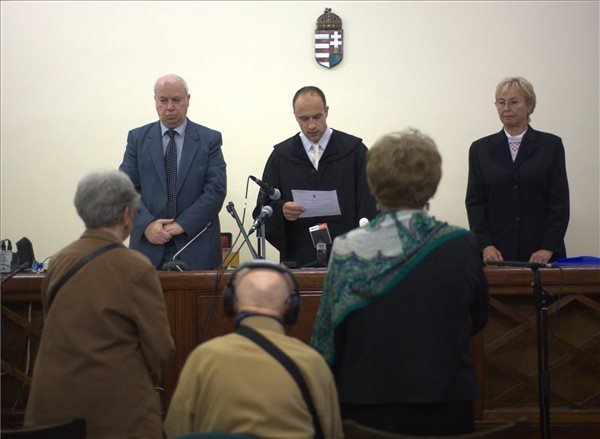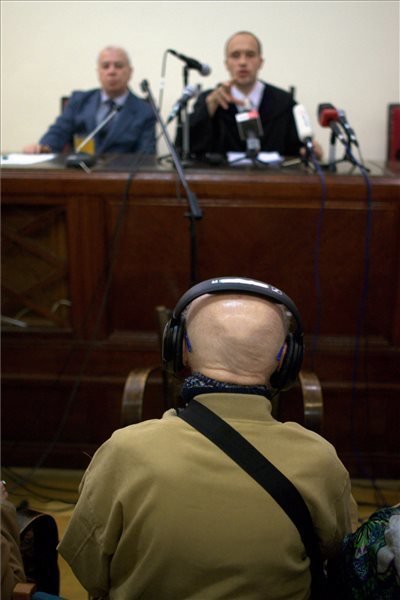Former Communist Official Handed Prison Sentence For War Crimes
Budapest, May 13 (MTI) – A court of first instance sentenced 92-year-old Bela Biszku, a senior official in Hungary’s communist past, to 5 years and 6 months imprisonment for his role in the retaliation after the anti-Soviet revolt of 1956, on Tuesday.
Biszku was found guilty of war crimes in the form of instigation and complicity to homicide.
This is the first time that a Soviet-era leader of the time has been put on trial in Hungary.
Bence Retvari, deputy leader of the co-ruling Christian Democrats, said that the sentence was gratifying for many victims of the former regime “run by Biszku and his peers”. “At last it is the victims that have rights rather than the perpetrators,” Retvari said. He added that Hungary’s new constitution had repaid an old debt when it “offered an opportunity for historical justice”.
The radical nationalist Jobbik party welcomed the sentence and said that it was “most important” that Biszku had been declared guilty, and “justice has been dispensed to several hundred thousand victims of the communist regime”.
The case against Biszku was brought after the ruling Fidesz party in 2011 introduced a law stipulating that war crimes and crimes against humanity do not lapse.
Biszku rejected the charge that he was responsible for the murder of nearly fifty people. Prosecutors said that in Salgotarjan, in north-east Hungary, 46 people were shot dead by Hungarian and Soviet armed forces in 1956.
A Budapest investigating prosecutor’s office raised charges against Biszku for war crimes and other crimes last October.
The indictment said that in the immediate aftermath of the revolution Biszku was a member of the Provisional Executive Committee, a central steering body of the then newly formed Hungarian Socialist Workers’ Party (MSZMP) under Janos Kadar. The committee had set up a special police force, directly controlled by its members, which was responsible for firing shots at the public, including unarmed protesters, in several parts of Hungary.
Biszku came into the public limelight in 2010 when a documentary film was aired on his role in the suppression of the uprising.
Photo: MTI – János Marjai
Source: http://mtva.hu/hu/hungary-matters
please make a donation here
Hot news
What happened today in Hungary – 26 July, 2024
Drama: number of births in a 20-year low in Hungary
Yay or nay? – 6 odd Hungarian delicacies that make our skin crawl
Budapest tourism “exploded” this past weekend
Container transport in Budapest may stop: How will this affect Hungarian economy?
Minister: Hungary will protect its territory by every means possible





